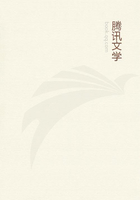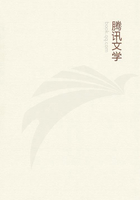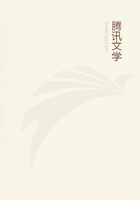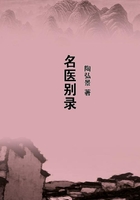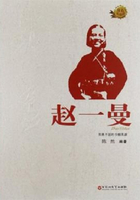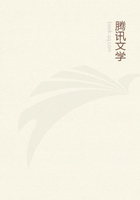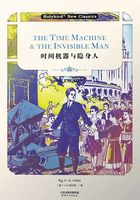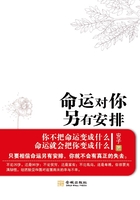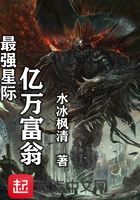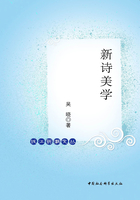The custom of killing a god in animal form, which we shall examine more in detail further on, belongs to a very early stage of human culture, and is apt in later times to be misunderstood. The advance of thought tends to strip the old animal and plant gods of their bestial and vegetable husk, and to leave their human attributes (which are always the kernel of the conception) as the final and sole residuum. In other words, animal and plant gods tend to become purely anthropomorphic. When they have become wholly or nearly so, the animals and plants which were at first the deities themselves, still retain a vague and ill-understood connexion with the anthropomorphic gods who have developed out of them. The origin of the relationship between the deity and the animal or plant having been forgotten, various stories are invented to explain it.
These explanations may follow one of two lines according as they are based on the habitual or on the exceptional treatment of the sacred animal or plant.
The sacred animal was habitually spared, and only exceptionally slain; and accordingly the myth might be devised to explain either why it was spared or why it was killed. Devised for the former purpose, the myth would tell of some service rendered to the deity by the animal; devised for the latter purpose, the myth would tell of some injury inflicted by the animal on the god. The reason given for sacrificing goats to Dionysus exemplifies a myth of the latter sort. They were sacrificed to him, it was said, because they injured the vine. Now the goat, as we have seen, was originally an embodiment of the god himself. But when the god had divested himself of his animal character and had become essentially anthropomorphic, the killing of the goat in his worship came to be regarded no longer as a slaying of the deity himself, but as a sacrifice offered to him; and since some reason had to be assigned why the goat in particular should be sacrificed, it was alleged that this was a punishment inflicted on the goat for injuring the vine, the object of the god's especial care. Thus we have the strange spectacle of a god sacrificed to himself on the ground that he is his own enemy. And as the deity is supposed to partake of the victim offered to him, it follows that, when the victim is the god's old self, the god eats of his own flesh. Hence the goat-god Dionysus is represented as eating raw goat's blood; and the bull-god Dionysus is called eater of bulls. On the analogy of these instances we may conjecture that wherever a deity is described as the eater of a particular animal, the animal in question was originally nothing but the deity himself. Later on we shall find that some savages propitiate dead bears and whales by offering them portions of their own bodies.
All this, however, does not explain why a deity of vegetation should appear in animal form. But the consideration of that point had better be deferred till we have discussed the character and attributes of Demeter.
Meantime it remains to mention that in some places, instead of an animal, a human being was torn in pieces at the rites of Dionysus. This was the practice in Chios and Tenedos; and at Potniae in Boeotia the tradition ran that it had been formerly the custom to sacrifice to the goat-smiting Dionysus a child, for whom a goat was afterwards substituted. At Orchomenus, as we have seen, the human victim was taken from the women of an old royal family. As the slain bull or goat represented the slain god, so, we may suppose, the human victim also represented him.
The legends of the deaths of Pentheus and Lycurgus, two kings who are said to have been torn to pieces, the one by Bacchanals, the other by horses, for their opposition to the rites of Dionysus, may be, as I have already suggested, distorted reminiscences of a custom of sacrificing divine kings in the character of Dionysus and of dispersing the fragments of their broken bodies over the fields for the purpose of fertilising them. It is probably no mere coincidence that Dionysus himself is said to have been torn in pieces at Thebes, the very place where according to legend the same fate befell king Pentheus at the hands of the frenzied votaries of the vine-god.
However, a tradition of human sacrifice may sometimes have been a mere misinterpretation of a sacrificial ritual in which an animal victim was treated as a human being. For example, at Tenedos the new-born calf sacrificed to Dionysus was shod in buskins, and the mother cow was tended like a woman in child-bed. At Rome a shegoat was sacrificed to Vedijovis as if it were a human victim. Yet on the other hand it is equally possible, and perhaps more probable, that these curious rites were themselves mitigations of an older and ruder custom of sacrificing human beings, and that the later pretence of treating the sacrificial victims as if they were human beings was merely part of a pious and merciful fraud, which palmed off on the deity less precious victims than living men and women. This interpretation is supported by many undoubted cases in which animals have been substituted for human victims.

